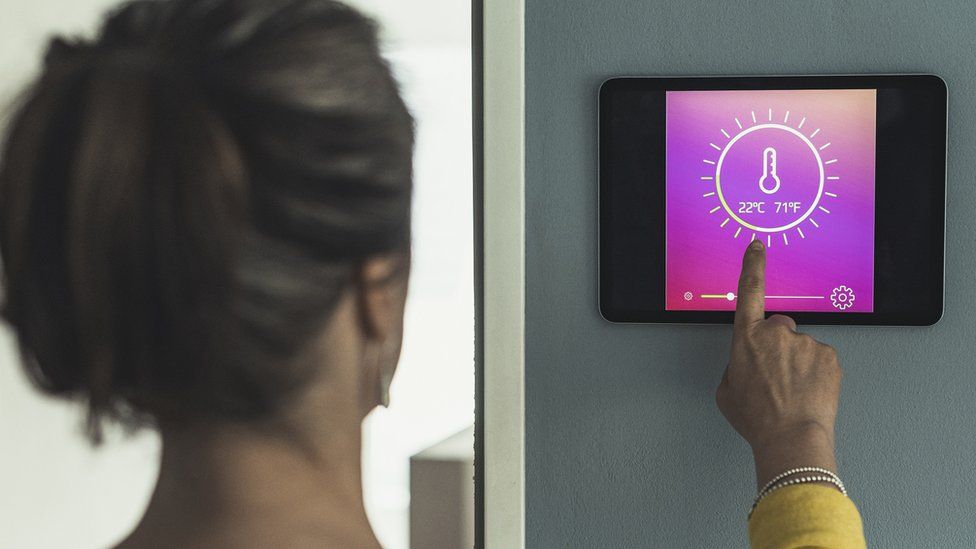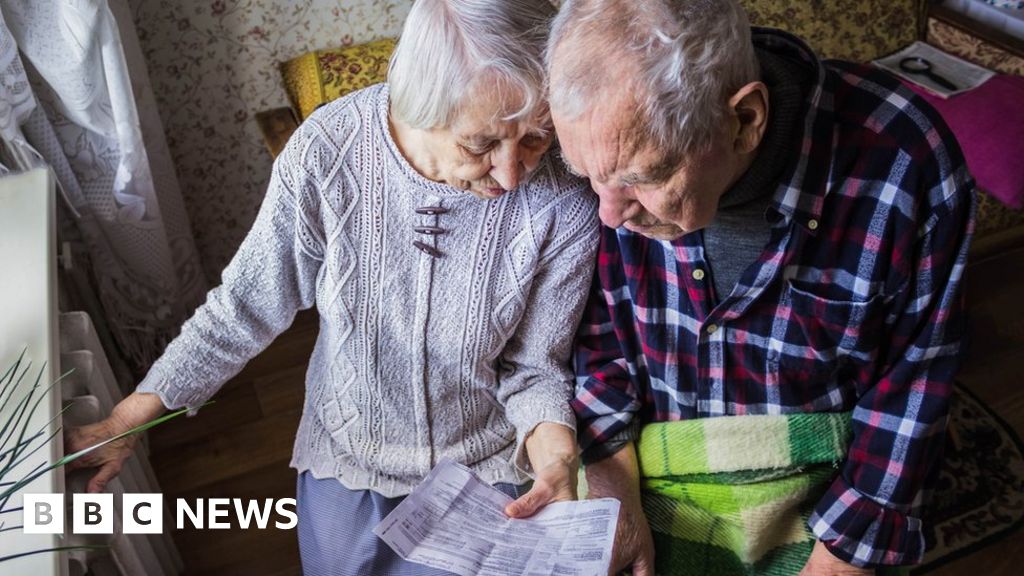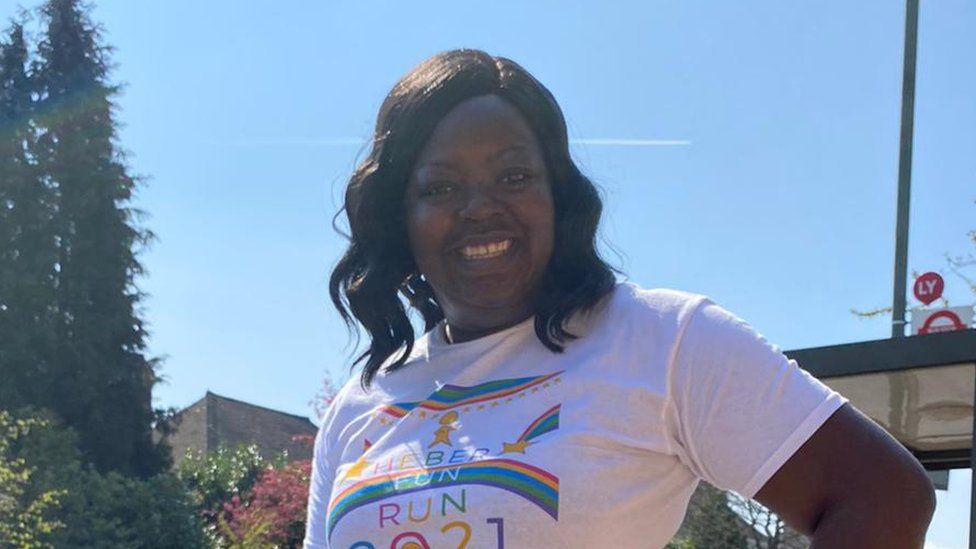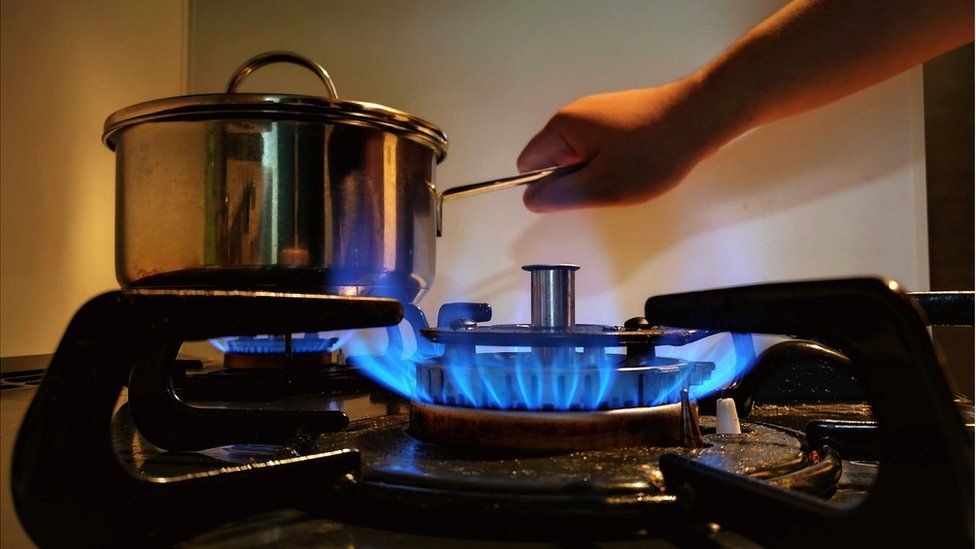
Some of the poorest households in England and Wales are struggling to access council tax rebates to help offset their soaring energy bills, a charity has warned.
National Energy Action said those who did not pay council tax by direct debit were affected, with many facing long waits for the £150 payouts.
Councils say they are struggling to administer the rebates at short notice.
But the government said they should make the payouts without further delay.
Councils were expected to start paying the £150 rebates from April, when the energy price cap went up by £693 for the average household, leaving many struggling to pay their bills.
All rebates must be paid by September, the government says.
However, the BBC looked at the websites of the 331 billing authorities in England and Wales responsible for administering the rebates and found a clear split in timings of payments for those who pay their council tax by direct debit and those who do not.
This is because direct debit payments are far easier to process, due to local authorities already having the name and banking details of the household.
‘Serious concerns’
The problem, says National Energy Action, is that it is typically the poorest households that do not pay council tax by direct debit – either because they do not have a bank account or because they manage their finances on a more ad hoc basis.
“There are serious concerns that those with the greatest need will be least able to access the money,” said chief executive Adam Scorer.

As of the end of May, more than 280 English and Welsh councils said payments should have been made directly into people’s bank accounts.
However, the vast majority of councils said customers who did not pay by direct debt were likely to be contacted over the coming weeks, by email or by post, and urged to make an application online or over the telephone.
Only 15 councils said they were already mailing out Post Office vouchers to non-direct debit households for them to exchange for cash.
‘It’s unfair’
The Lighthouse Project is a community hub set up to tackle poverty in Middleton, Greater Manchester. At its weekly coffee morning at the local shopping centre, there was a lot of confusion about the rebate.
The town sits under Rochdale Borough Council, where over a third of residents do not pay council tax by direct debit.
“I think it’s unfair,” said Chris O’Keefe who pays his council tax weekly. “Just because you don’t pay by direct debit, it shouldn’t mean you’re not a priority. We should all be treated the same.”
Chris and his friend John, who was sat next to him, both live with a disability and say that keeping on top of their entitlements through the council’s website or over the phone is already pretty tricky. Accessing the rebate is likely to be hard, they think.

Carole Mboe did not know about the rebate at all and worried that many people would not know how to apply online. “Many people just do not have the computer skills,” she said.
Lianne Walker has learning difficulties and would struggle with a letter from the council. “Either I’d get my neighbour to read it for me or I’d take it to my sister,” she said. “I’d be paranoid and all stressed and I might burst out crying.”
But 90-year-old Rosemary Donnelly has already received her payment because she pays by direct debit, and has been telling her friends at the local lunch club to look out for it.
“£150 will make a lot of difference, because to some people it’s an awful lot of money,” she said.
‘Getting our skates on’
Rochdale Borough Council is processing 50,000 direct debit rebates and has just started to mail out letters to the other 30,000 locals who won’t be paid automatically. Neil Emmott, who leads the council, said central government probably did not understand how complicated the process would be in many areas.
“I think governments sat in London don’t always necessarily know what’s taking place,” he said. “It’s not fair, but give me an alternative way to do this?”
He added: “The most vulnerable need this payment, and we are getting our skates on to get payments to those people as soon as possible.”
But other councils have found it more straightforward.


The £150 energy rebate was a flagship government announcement. Rather than target help to the most vulnerable they decided to give free money to the vast majority of households to help them cover the energy price cap rise.
But no-one had this money in their account on 1 April when energy prices went up for most households. 331 different billing authorities had to work out a way to get the money to us, resulting in a postcode lottery between authorities.
For most councils in England and Wales it’s taking a few months to get the money to those who pay by direct debit, and it’s now a much longer wait for those who pay council tax in another way, or are exempt from council tax altogether.
The most vulnerable are only now being contacted, and a process which puts the onus on them to apply online or get in touch with bank details is only just beginning. Meanwhile the higher bills have had to be paid, or the meter topped up, with none of the extra cash the government promised.

Just 90 miles away in Shropshire, Telford and Wrekin Council has already processed 95% of its rebates, regardless of how residents pay their council tax bill.
Cllr Rae Evans, who leads on finance and customer service in the area, said the council’s experience of handling grant funding during the pandemic had helped it get on the front foot by investing in its website and app and pushing residents to pay by direct debit.
“We are immensely aware of the financial pressures that our residents and businesses are under,” she said. “We could see this coming earlier in the year, so it was thinking ahead that allowed us to be in the right place at the right time.”
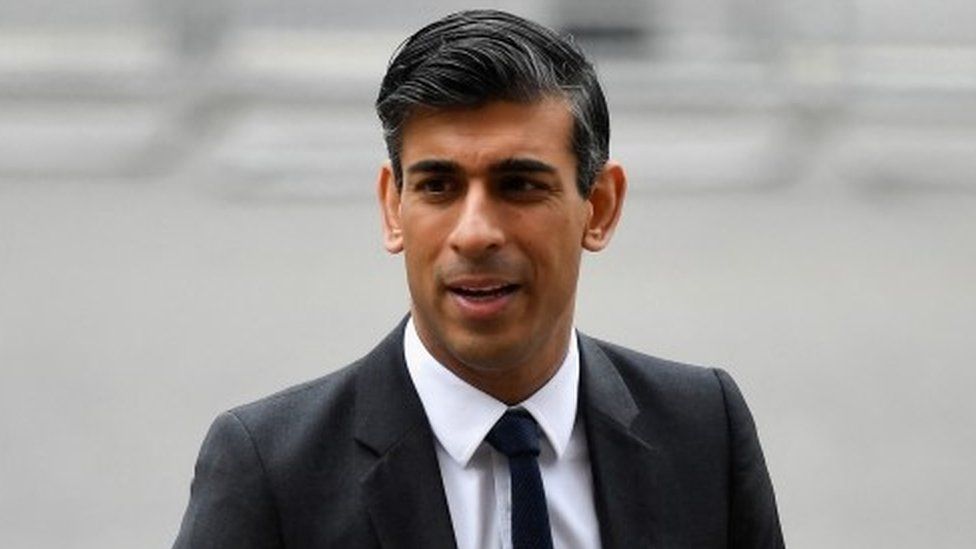
Payment systems for the rebate vary across the nations of the UK.
The BBC contacted 32 billing authorities in Scotland. 25 responded to confirm that the £150 is not rebated but instead credited onto the council tax bill, making monthly payments lower for the forthcoming financial year. Those exempt from paying council tax in Scotland can apply for a cheque.
The government in Northern Ireland has received a proportionate amount of money which will go into their central funds.
‘Not without challenges’
The Local Government Association, which represents councils in England, said the rebate has been “a significant task and not without its challenges”.
“Many residents who are signed up to direct debit will have already started to receive their rebate,” a spokesperson said. “Some councils have begun making payments this month to allow software to be fully tested and to ensure April direct debit payments are not recalled and many are now also focusing on contacting those eligible who do not pay their council tax by direct debit.”
The LGA added that many local authorities had additional schemes in place for locals struggling with their energy bills.
A spokesperson for the Department for Levelling Up, Housing and Communities said they expected local councils to start making payments without further delay.
“Direct debit is the quickest and easiest way to pay council tax, and the best way for most people to get the rebate. But councils have a range of options for people who don’t pay by direct debit.”
A Treasury spokesperson said the country has had a “strong economic recovery” from the pandemic but acknowledged that these are “anxious times”, and said the government is taking action to support households.
“This includes a tax cut of over £330 a year for the typical employee, lowering the Universal Credit taper rate to help people keep more of the money they earn, and providing millions of households with up to £350 each to help with rising energy bills,” the spokesperson said.
“Public debt is at the highest levels since the 1960s and rising inflation is pushing up our debt interest costs, which means we must manage public finances sustainably to avoid saddling future generations with further debt.”
-
- 3 February
